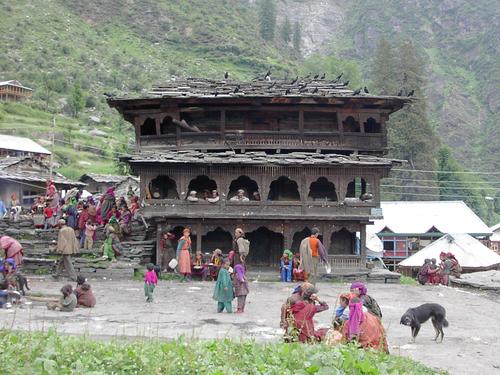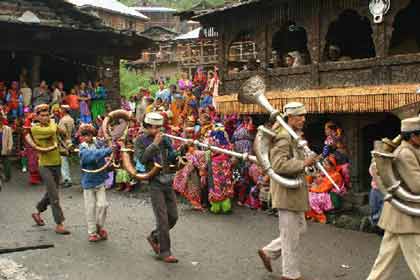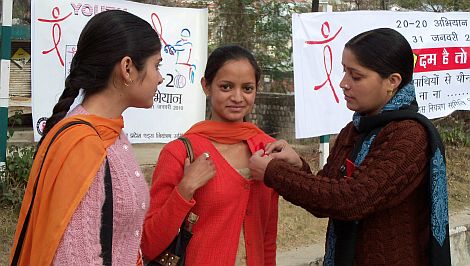Malana is perhaps one of the oldest forms of self government still around that is structured around Jamlu Devta (village deity) as the supreme head.
The villagers have a sort of central executive (jyeshtan) comprising the Manager (Karmish), the Priest (Pujari)and the Oracle (Gur ) as permanent members and also elect eight others.

Another body comprising heads of all the households in the village form the general or lower house (Kor). All deliberative matters are discussed in simultaneous sessions of the executive and the general house.
The central executive ( jyeshtan), being the chosen one, occupies a raised platform (Cilauntra) and the latter, a portion of the ground. Frequent consultations between the two are held before a decision is taken.
An appeal, if preferred against their decision, lies with the God who speaks through his Oracle (Gur.)
Though a panchayat (modern local self government body) exists in village since 1944 but till date no cases have come up before it. It has for long been the custom in Malana to settle all disputes before the local tribunal.
The priests at specified times call all the villagers and absenteeism attracts a fine from the governing body.
With an assembly gathered, the priests demands to know who has complaints. They are asked to come forward and when in a case there are doubts about right and wrong, each litigant is asked to bring a goat. The thigh of the animal is cut open and poison is inserted into the wound, with the contentious issue being settled in favour of the one whose goat dies first.
The village of Malana is situated on right bank of the Malana torrent that joins the river Parbati at Jhari.
The residents of Malana village keep entirely to themselves, neither eating nor intermarry with the people outside of their village and speak a language which no one but they themselves can understand.
Malana is divided into two portions, the upper and lower villages. The latter built round a large square is deemed sacred, with no one being allowed to enter therein with leather shoes on.
They have maintained a gently independent cultural position in many ways and admit of no authority in their religion and social matters except that of Jamlu.

Sanjay Dutta, an engineer by qualification but is a journalist by choice.
He has worked for the premier new agency Press Trust of India and leading English daily Indian Express.
With more than a decade of experience, he has been highlighting issues related to environment, tourism and other aspects affecting mountain ecology.
Sanjay Dutta lives in a village close to Manali in Kullu valley of Himachal.




A living fossil of ancient Indian republics…unfortunately made notorious for its charas by vested interests !